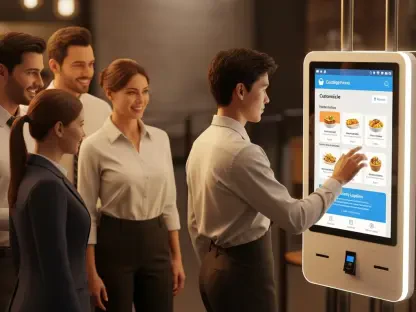Listen to the Article
The travel industry is changing, and technology is at the center of this. Gone are the days of stressful research and chaotic planning where trips are involved. Now, seamless and personalized experiences are the hallmarks of hospitality for both travelers and providers. Integrating AI helps agencies meet customer needs and scale faster. This article briefly addresses the challenges in hospitality and how an emerging tech ecosystem reshapes travel experiences, with a focus on the role of personalization and direct connection in satisfying consumer needs.
Insight Into Hospitality
Younger, more digital-first, and tech-savvy travelers expect unique experiences that are AI-powered to address their needs. Brands that use outdated booking and planning models risk losing customer interest, which can lead to fewer sales and visibility.
As consumer demands change, B2B professionals must find ways to innovate and maintain efficiency across their operations. Meanwhile, independent hoteliers and small businesses are constantly battling with low visibility and high commission fees from dominant platforms, such as online travel agencies.
Besides evolving demands, sustainable hospitality is becoming a priority for travelers. Eco-conscious guests want trips that align with their environmental values. This forces agents to reimagine their platforms and adopt more consolidated approaches that offer simplicity with AI. This adjustment improves energy efficiency and reduces waste by allowing travel activity to happen on a single platform. Innovation can attract more eco-friendly customers and build long-term brand loyalty.
Recognizing the role of AI in overcoming travel industry challenges is essential for success. By embracing the value of innovation, businesses stay relevant in a highly competitive global hotel market.
Personalize Experiences With AI-Powered Solutions
Travel should be exciting, not stressful. But for 53% of travelers, planning is more nerve-racking than the trip itself. AI is changing that with smart platforms that consolidate research and booking information for an easier, stress-free experience. By simplifying the process, smart tech reduces systematic inefficiencies and meets customer demands – improving ROI and promoting rebooking.
Businesses can use conversational AI assistants to create customized itineraries for travelers based on their preferences and budgets. This integration can reduce decision fatigue and create experiences that satisfy consumer expectations. Smart tools can suggest activities, accommodations, dining options, and new experiences that may not have traditionally been discovered.
Advanced assistance and single-platform use work together to ensure customer satisfaction, increasing their loyalty to the business with less operational overhead. Rather than depending on human agents to manage complicated bookings and respond to countless inquiries, AI systems streamline workflows, so staff are free to focus on quality customer interactions and other value-added services.
Reduce Online Travel Agency Dependency and Empower Independent Hoteliers
Large online travel agencies, including Booking.com, Expedia, and Airbnb, dominate the hospitality industry, which is one of the biggest challenges. While businesses gain visibility from these platforms, they often charge high commission fees – sometimes up to 30% – impacting the bottom line of independent enterprises and hoteliers.
AI minimizes this dependency by unlocking direct access in travel. It uses intelligent ecosystems to connect travelers with providers without the traditional red tape. In new tourist markets, early adopters are using smart platforms to connect thousands of properties with eager international audiences.
By integrating property management systems like Cloudbeds and SiteMinder, AI ecosystems give organizations the tools to directly engage with audiences without depending on intermediaries or third-party channels. This instant connection can save costs while increasing their visibility to digital-first travelers who want unique, local, or international experiences.
Meet Customer Demands Using Relevant Data
Research confirms that 80% of customers across airlines find generative AI useful for travel booking, indicating their readiness to embrace highly personalized experiences. Hospitality providers can use these tools to learn more about their audiences because the key to meeting customer expectations is knowing what they need. Whether trying new cuisines or finding different activities, travelers expect uniqueness from the accommodations they enjoy.
Using algorithms to collect and analyze data on past preferences, booking patterns, and even social media activity helps businesses anticipate guest needs beforehand. Knowing what guests prefer makes it possible to create unique messaging and marketing to attract customers based on personal preferences.
At the same time, travel enterprises can optimize their pricing strategies in real time by using AI to factor in various variables, such as demand, seasonality, and competitor pricing. A dynamic pricing approach can increase revenue without sacrificing customer satisfaction. At the same time, this effort ensures that hospitality providers can offer competitive prices while still maintaining profitability.
Enhance Efficiency and Guest Engagement
Personalization is just the beginning – AI also relieves pressure on operations by automating tasks and improving resource management. For example, it can handle administrative duties like reservation management, check-ins, and guest communication, while travel staff focuses on providing exceptional in-person experiences for guests.
AI takes the hassle out of group getaways, using smart features that allow travelers to easily plan and book trips as a team. This way, group communication and coordination remain top priority, boosting interest and satisfaction in the travel offers.
Stay Visible, Smart, and Digital
Intelligent technology brings automation and modern convenience to the guest journey, helping hotels, resorts, and local businesses improve hospitality with innovation. Integrating AI tools into existing systems delivers seamless, enjoyable customer experiences to build lasting relationships.
As the world constantly changes, companies can use smart systems to track trends in real time and respond faster to traveler expectations. This proactive approach allows agents to improve their offerings for greater customer satisfaction.
Conclusion: Embrace Intelligence
Notably, AI is the future of hospitality. It simplifies planning and gives customers personalized, cost-effective services. The next step for hospitality providers should be evaluating how intelligent technologies can integrate into existing systems to drive direct bookings and enhance guest engagement.
Success in today’s market starts with smart data and powerful tools that can turn great experiences into lasting customer loyalty and sales. As AI redefines travel, companies that embrace it today can grow and gain a competitive advantage – making them industry leaders tomorrow.









